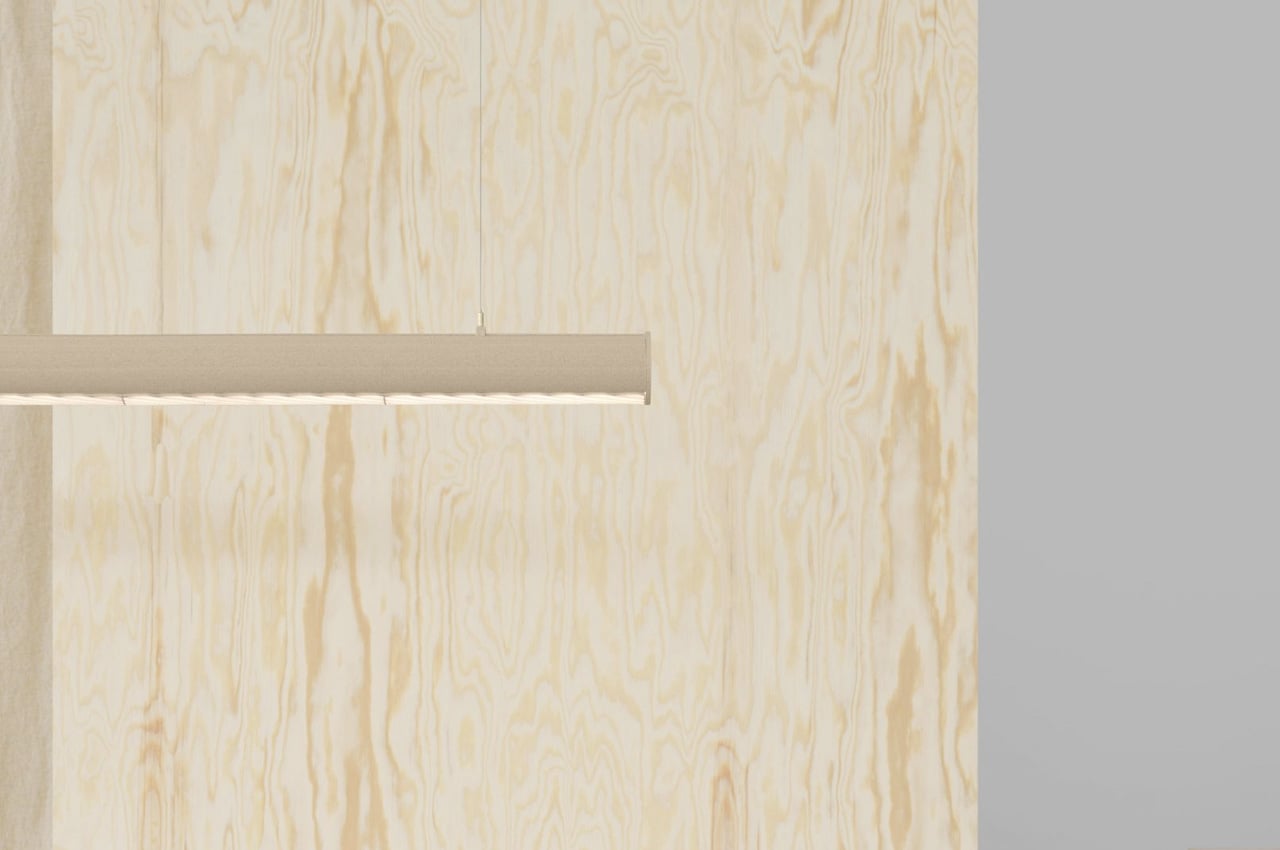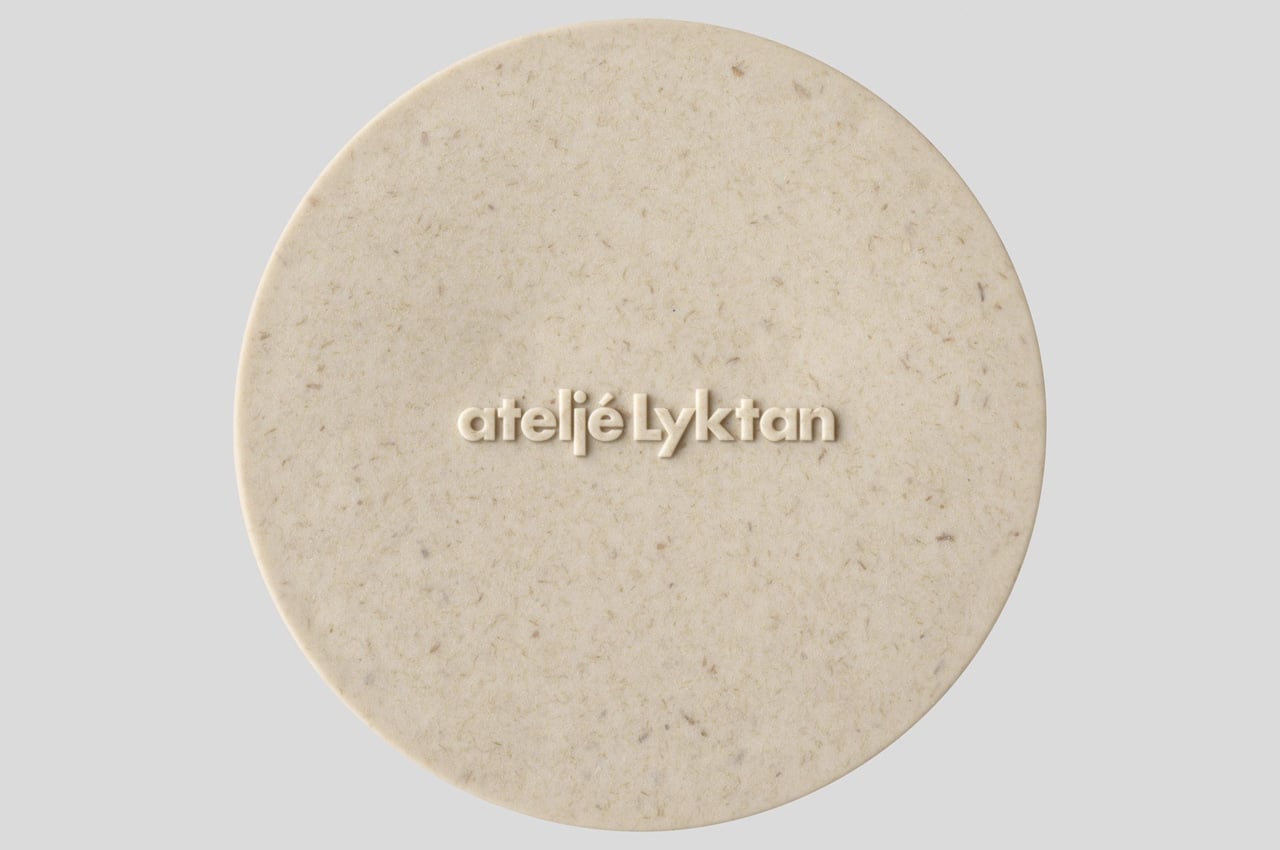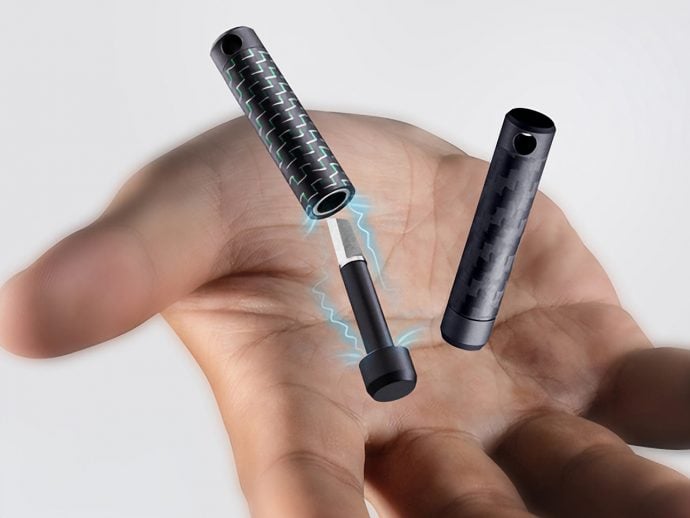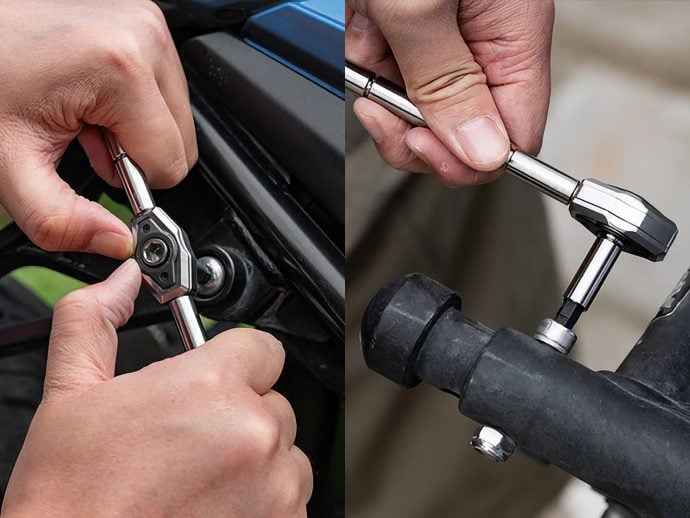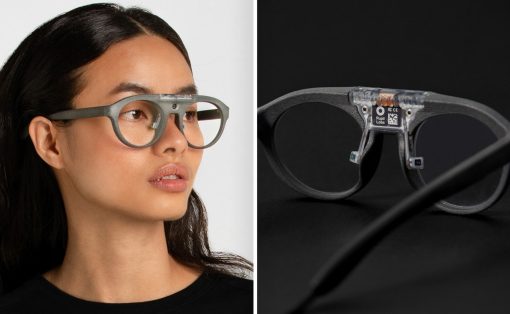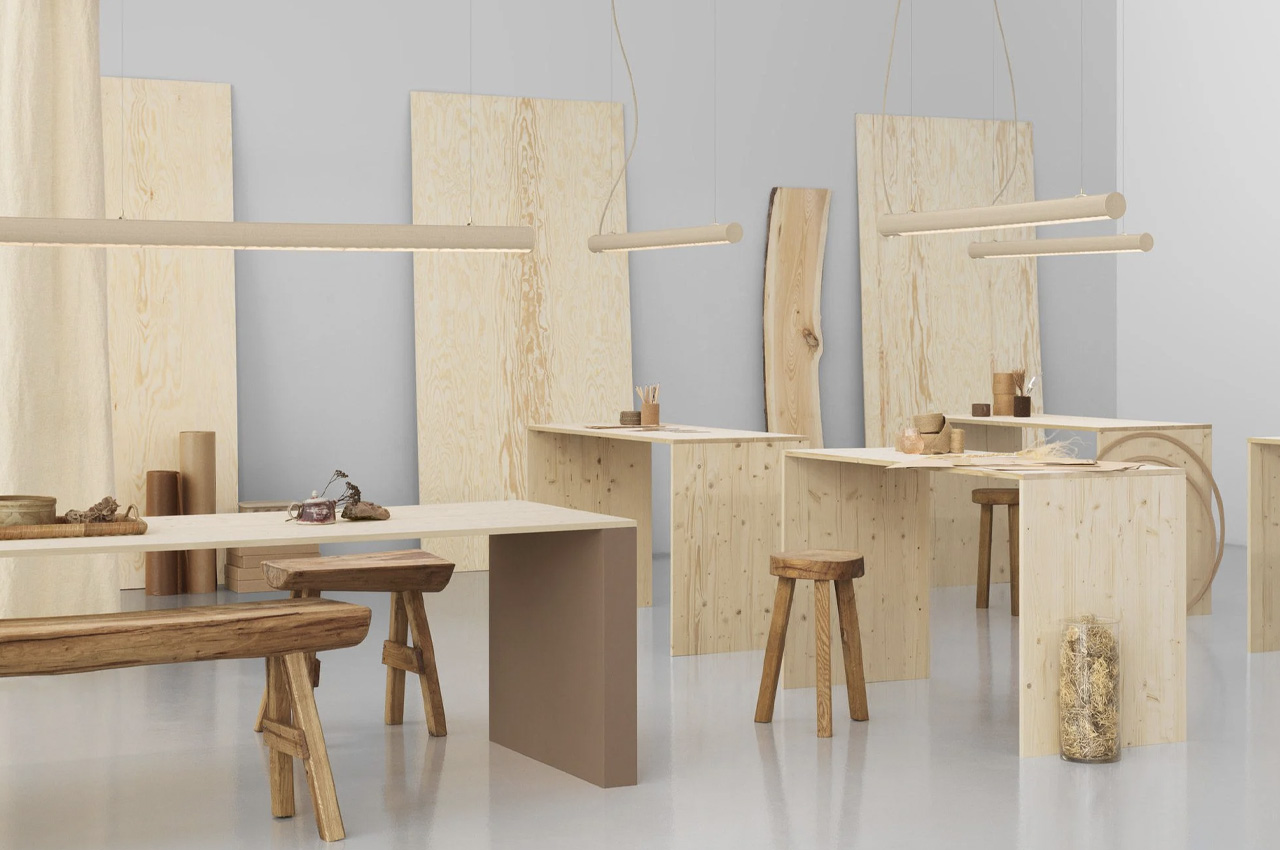
Acclaimed Norwegian studio Snøhetta collaborated with lighting brand Ateljé Lyktan to design the Superdupertube – an innovative office lamp made using extruded hemp and sugarcane bioplastic. The hemp-based lighting is a contemporary update of Ateljé Lyktan’s Supertube which is an office light from the 1970s. It was made from extruded aluminum.
Designer: Snøhetta & Ateljé Lyktan
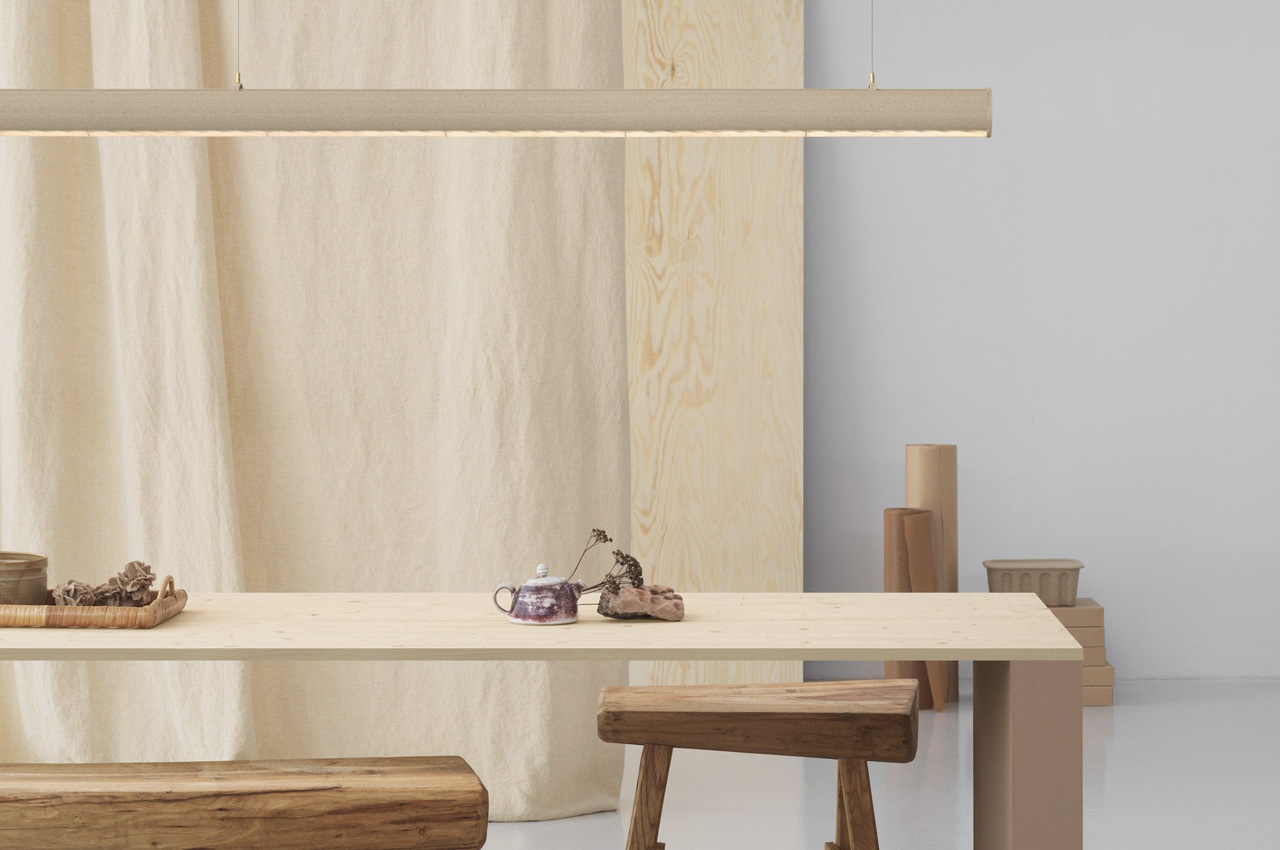
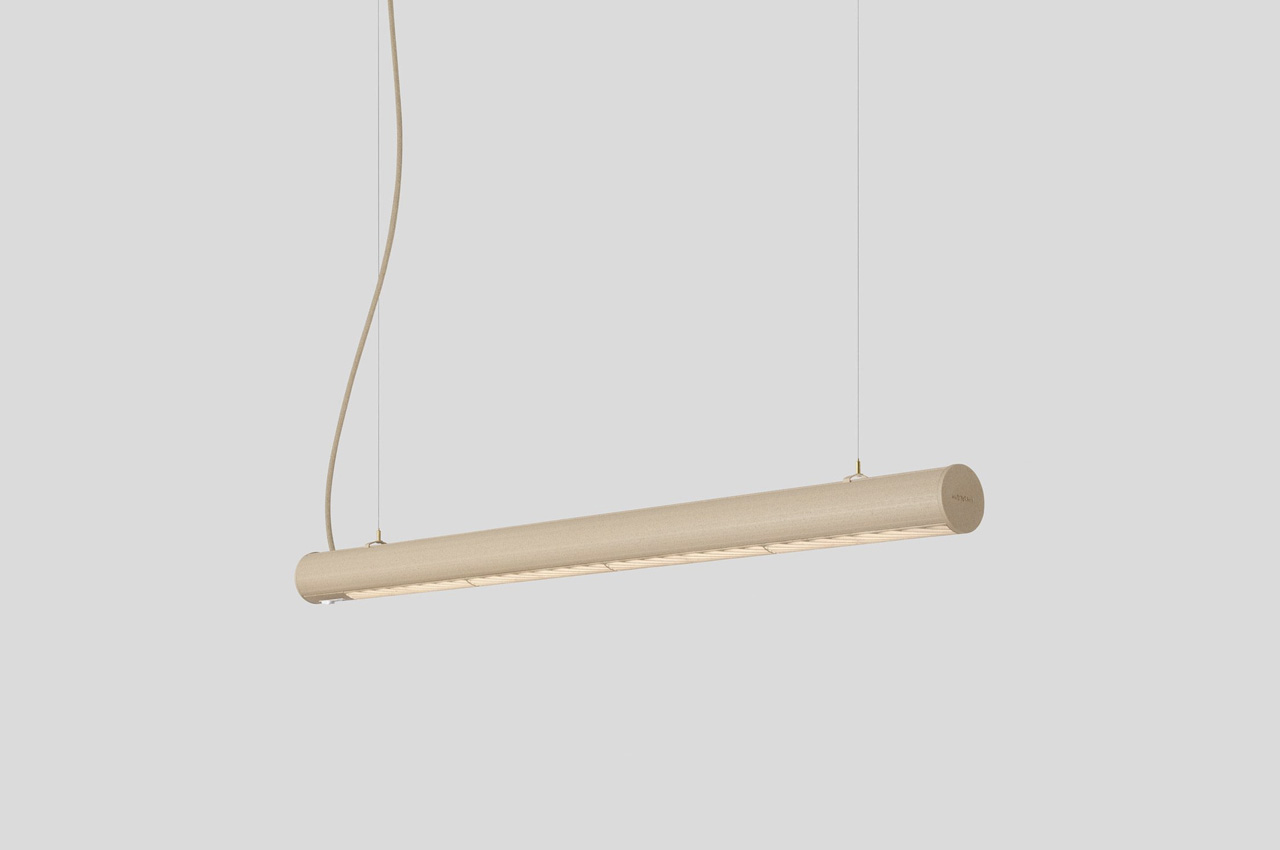
“[The Supertube] had finished production in 2010 or something like that, so it was iconic but sort of forgotten,” said Snøhetta partner Jenny B Osuldsen. “And it’s a tube. It’s not rocket science but it is what you need for a smart lamp in an office.” “We really loved it and think it has a lot of possibilities, so we wanted to upgrade it to a new level,” she added. The lighting design is made from hemp, and it can be industrially composed.
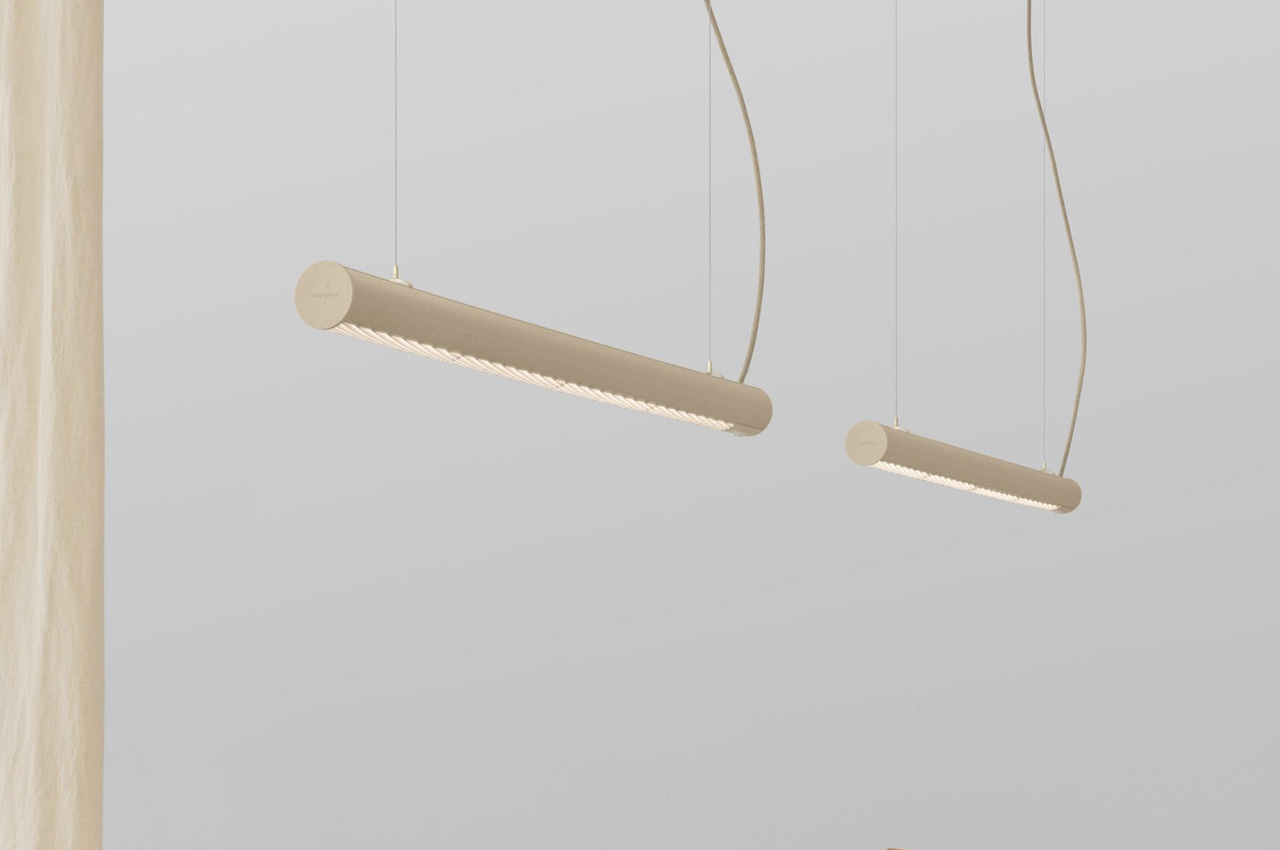
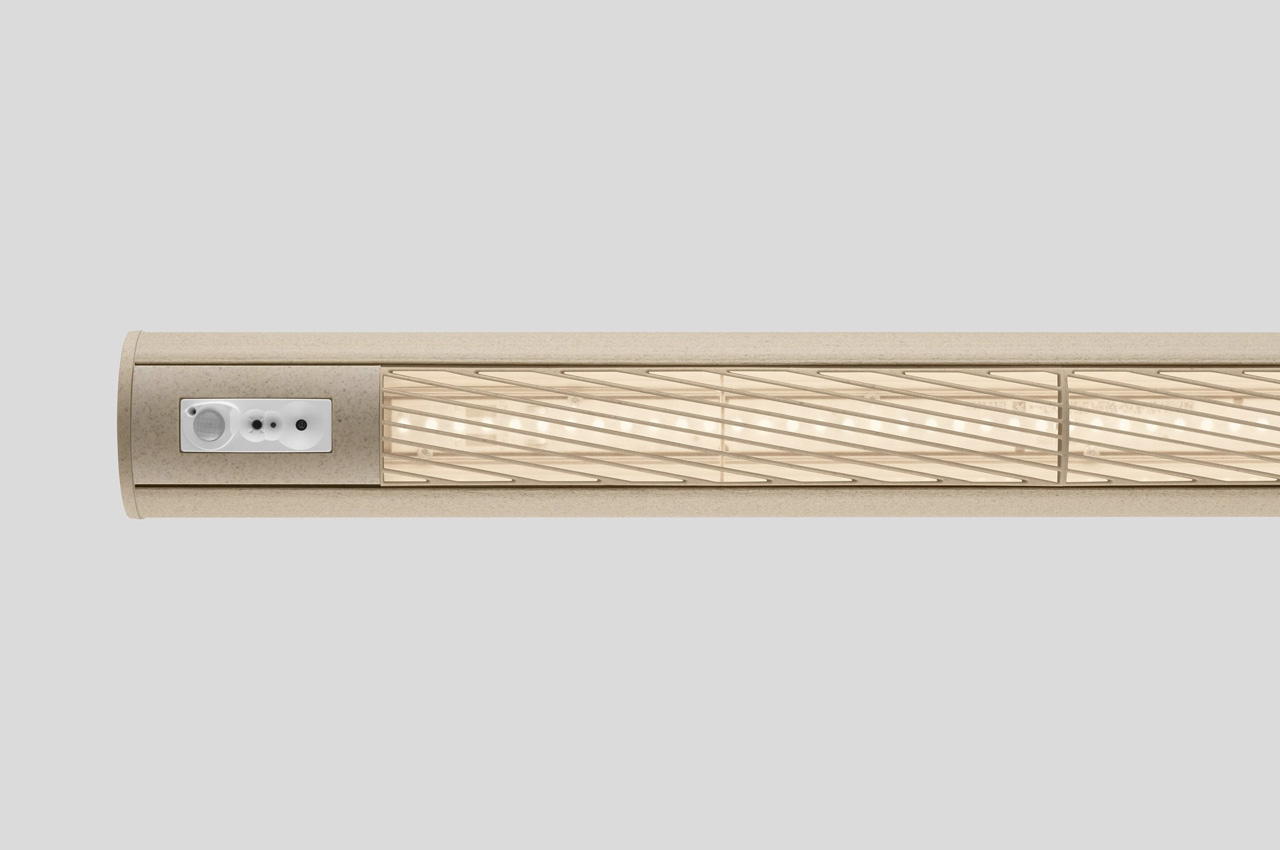
The extrusion technique used to create the original Supertube was developed in the 1960s, and both brands wanted to produce a lamp that was inspired by and pays tribute to the original design. But, at the same time, they wanted to lower the carbon footprint of the lamp and picked the most sustainable material they could find, which is hemp – a material known for being renewable and durable. They experimented with different materials, before finally picking hemp bioplastic to build Snøhetta’s first office lighting design.
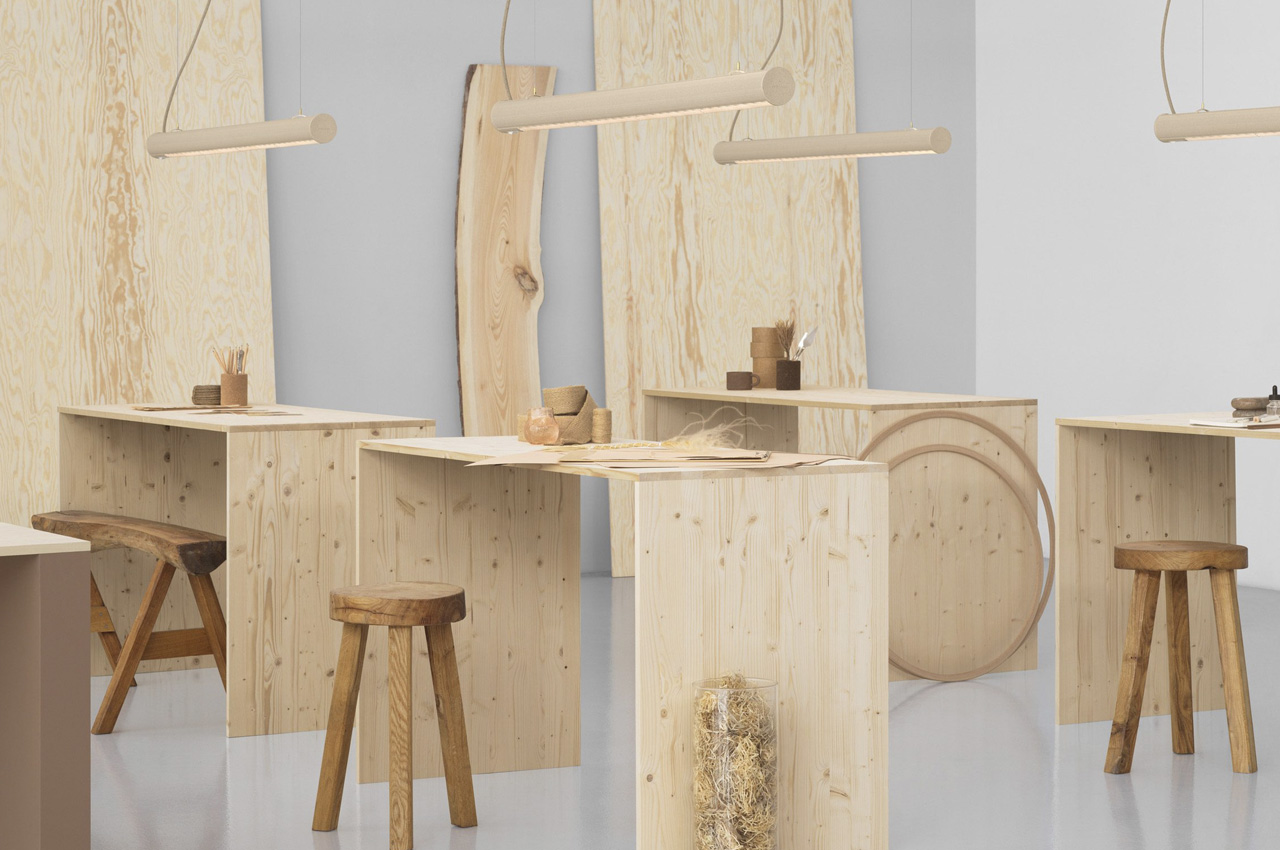
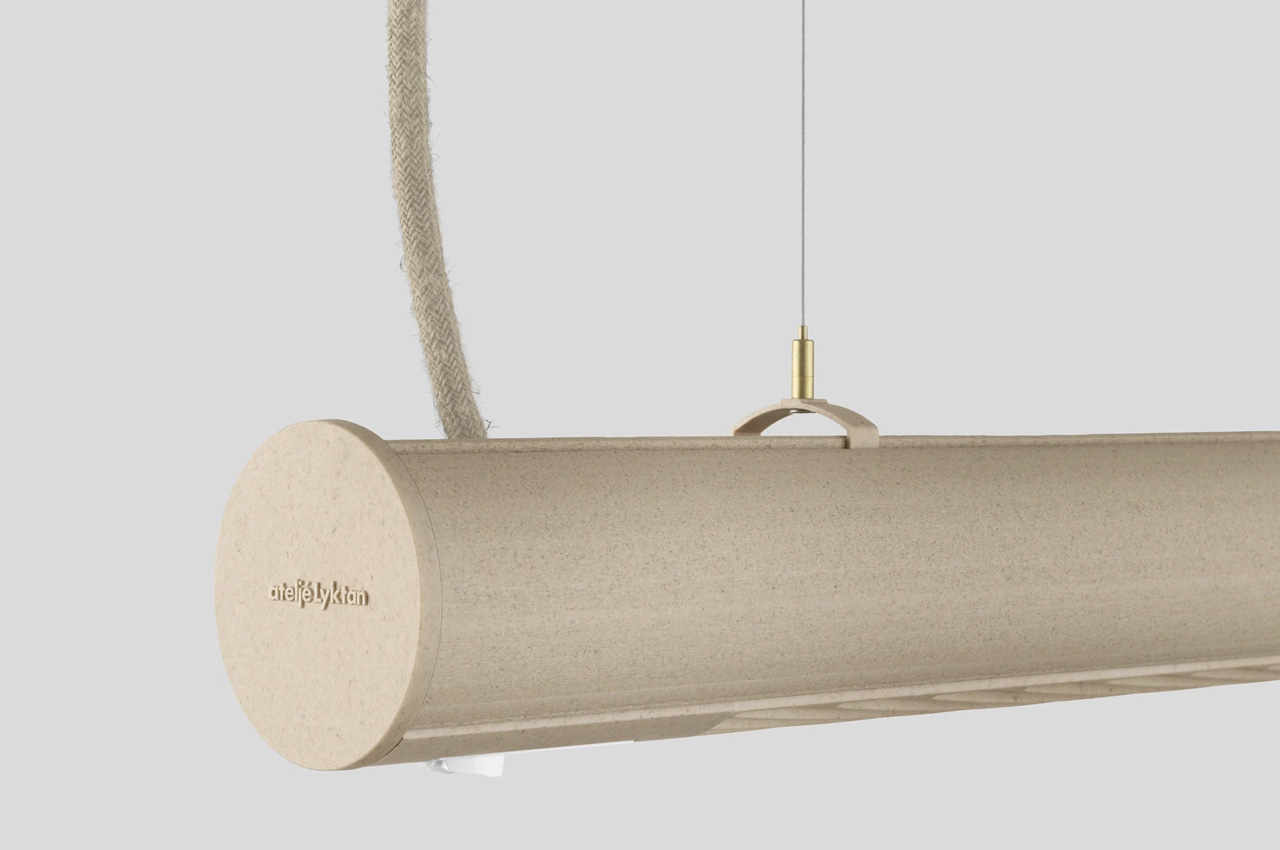
Snøhetta and Ateljé Lyktan sourced the hemp used for the lights from the Netherlands, as the quality of the hemp from Swedish farmers “wasn’t quite there yet”, according to Gadd. The hemp used for the lighting design was sourced from the Netherlands, as they believed the quality of hemp from the Swedish farmers “wasn’t quite there yet”, according to Gadd. The hemp is then mixed with polylactic acid bioplastic which is derived from sugarcane, wood cellulose, and other minerals to form a fossil and gas-free composite. This material is then extruded to form the main body of the lamp, which also includes injection-molded louvers and side covers. The electric cables are covered in linen fabric. The lamp can also be composted in an industrial composter, or even recycled and transformed into pellets to build more lamps.
